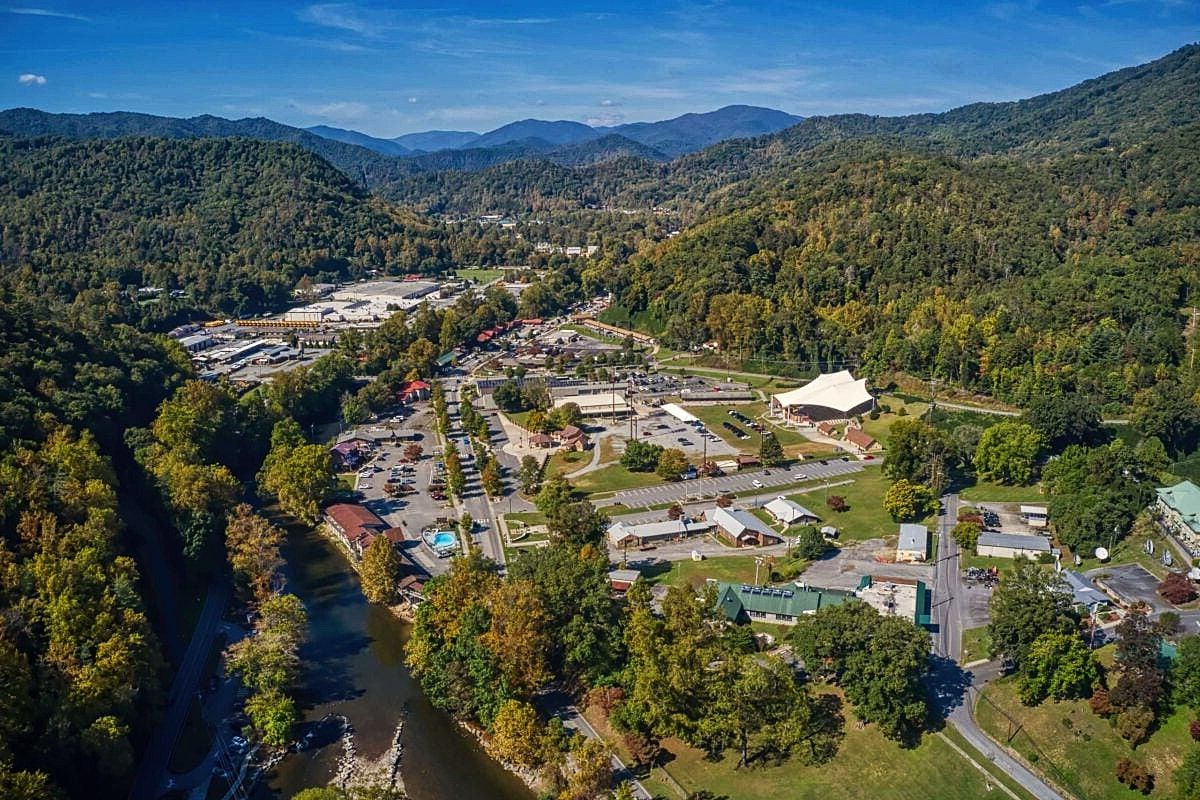Secrets Of North Carolina’s Ancient Cherokee Settlements

Have you ever wondered about the hidden stories of North Carolina's ancient Cherokee settlements? These historic sites offer a glimpse into the lives of the Cherokee people long before modern times. Nestled in the Appalachian Mountains, these settlements showcase a rich culture and history. From the intricate designs of their homes to the sacred mounds used for ceremonies, each element tells a unique story. Visiting these sites not only provides a historical perspective but also a deeper appreciation for the Cherokee's connection to nature. Ready to step back in time and explore the secrets of these ancient communities? Let's dive into the fascinating world of the Cherokee settlements.
Discovering the Heart of Cherokee Culture
North Carolina's ancient Cherokee settlements offer a glimpse into a rich history and vibrant culture. These places are not just historical sites; they are living stories waiting to be told. Let's explore some of the most fascinating Cherokee settlements in North Carolina.
1. Kituwah Mound
Kituwah Mound, often called the "Mother Town" of the Cherokee, is a sacred site. Located near Bryson City, this mound is believed to be the original settlement of the Cherokee people. Visitors can walk the grounds and feel the deep spiritual significance of this ancient place.
2. Oconaluftee Indian Village
Step back in time at the Oconaluftee Indian Village in Cherokee, NC. This living history museum recreates a Cherokee village from the 18th century. Watch traditional crafts being made, listen to stories, and learn about the daily life of the Cherokee people.
3. Judaculla Rock
Judaculla Rock, near Cullowhee, is covered in mysterious petroglyphs. These ancient carvings are believed to be thousands of years old. The rock is named after Judaculla, a giant in Cherokee legend. It's a fascinating site for anyone interested in ancient art and mythology.
Exploring Cherokee Heritage Sites
Beyond the settlements, several heritage sites offer deeper insights into Cherokee history and culture. These places preserve the legacy of the Cherokee people and educate visitors about their enduring traditions.
4. Museum of the Cherokee Indian
Located in Cherokee, NC, this museum offers a comprehensive look at Cherokee history. Exhibits include artifacts, interactive displays, and detailed narratives that span thousands of years. It's a must-visit for anyone wanting to understand the full scope of Cherokee heritage.
5. Qualla Arts and Crafts Mutual
Founded in 1946, Qualla Arts and Crafts Mutual is the oldest Native American cooperative in the United States. Located in Cherokee, NC, it showcases and sells traditional Cherokee crafts. Visitors can see beautiful handmade baskets, pottery, and beadwork, all created by local artisans.
6. Mingus Mill
Mingus Mill, located in the Great Smoky Mountains National Park, is a historic grist mill built in 1886. Operated by the Cherokee, it offers a glimpse into the agricultural practices and daily life of the Cherokee people. The mill is still operational and demonstrates traditional milling techniques.
Walking Through Cherokee Trails
The ancient trails of the Cherokee people crisscross North Carolina, offering scenic routes and historical insights. These trails were once vital for trade, communication, and migration.
7. Trail of Tears National Historic Trail
This trail commemorates the forced relocation of the Cherokee people in the 1830s. Sections of the trail run through North Carolina, allowing visitors to walk in the footsteps of those who endured this tragic journey. Interpretive signs and markers provide historical context along the way.
8. Mountains-to-Sea Trail
The Mountains-to-Sea Trail stretches across North Carolina, from the Great Smoky Mountains to the Outer Banks. Portions of this trail follow ancient Cherokee paths. Hikers can enjoy stunning landscapes while reflecting on the history of the land they traverse.
9. Tsali Recreation Area
Named after a Cherokee hero, the Tsali Recreation Area offers miles of trails for hiking, biking, and horseback riding. Located near Fontana Lake, this area is steeped in Cherokee history and legend. It's a beautiful spot to enjoy nature and connect with the past.
Preserving Cherokee Legacy
Efforts to preserve and honor Cherokee heritage continue today. These initiatives ensure that the stories, traditions, and culture of the Cherokee people remain vibrant and accessible for future generations.
10. Cherokee Historical Association
The Cherokee Historical Association, based in Cherokee, NC, works to preserve and promote Cherokee culture. They operate the Oconaluftee Indian Village and the Museum of the Cherokee Indian. Their efforts help keep Cherokee history alive and educate the public about this rich heritage.
11. Unto These Hills
"Unto These Hills" is an outdoor drama performed in Cherokee, NC, that tells the story of the Cherokee people. This powerful production has been running since 1950 and draws thousands of visitors each year. It's a moving tribute to the resilience and spirit of the Cherokee.
12. Sequoyah Birthplace Museum
Located in Vonore, TN, near the North Carolina border, this museum honors Sequoyah, the creator of the Cherokee syllabary. The museum offers exhibits on Sequoyah's life and the impact of his work on Cherokee literacy and culture. It's a fitting tribute to a remarkable figure in Cherokee history.
Discovering Cherokee Heritage
Exploring North Carolina's ancient Cherokee settlements offers a glimpse into a rich history. These sites, like Kituwah and Oconaluftee Indian Village, reveal the deep cultural roots of the Cherokee people. Visiting these places, you can see traditional homes, sacred mounds, and artifacts that tell stories of a resilient community.
Engaging with local guides and participating in cultural events enhances the experience. You gain a deeper appreciation for the Cherokee's contributions to American history. The landscapes, from the Great Smoky Mountains to the rivers, add to the beauty of this journey.
Whether you're a history buff or just curious, these ancient settlements provide a meaningful connection to the past. They remind us of the importance of preserving and respecting indigenous cultures. So, next time you're in North Carolina, take the opportunity to explore these remarkable sites.

